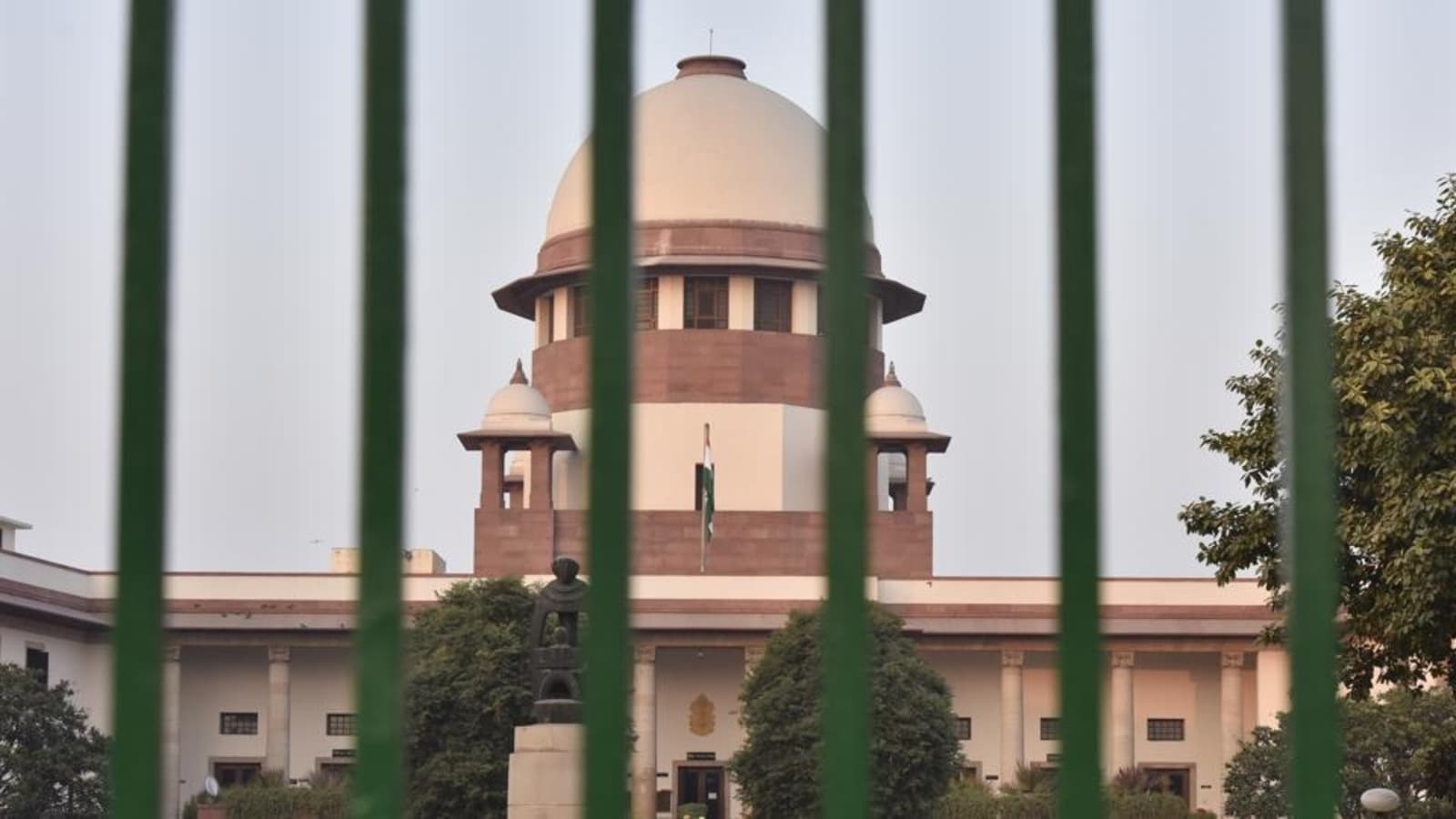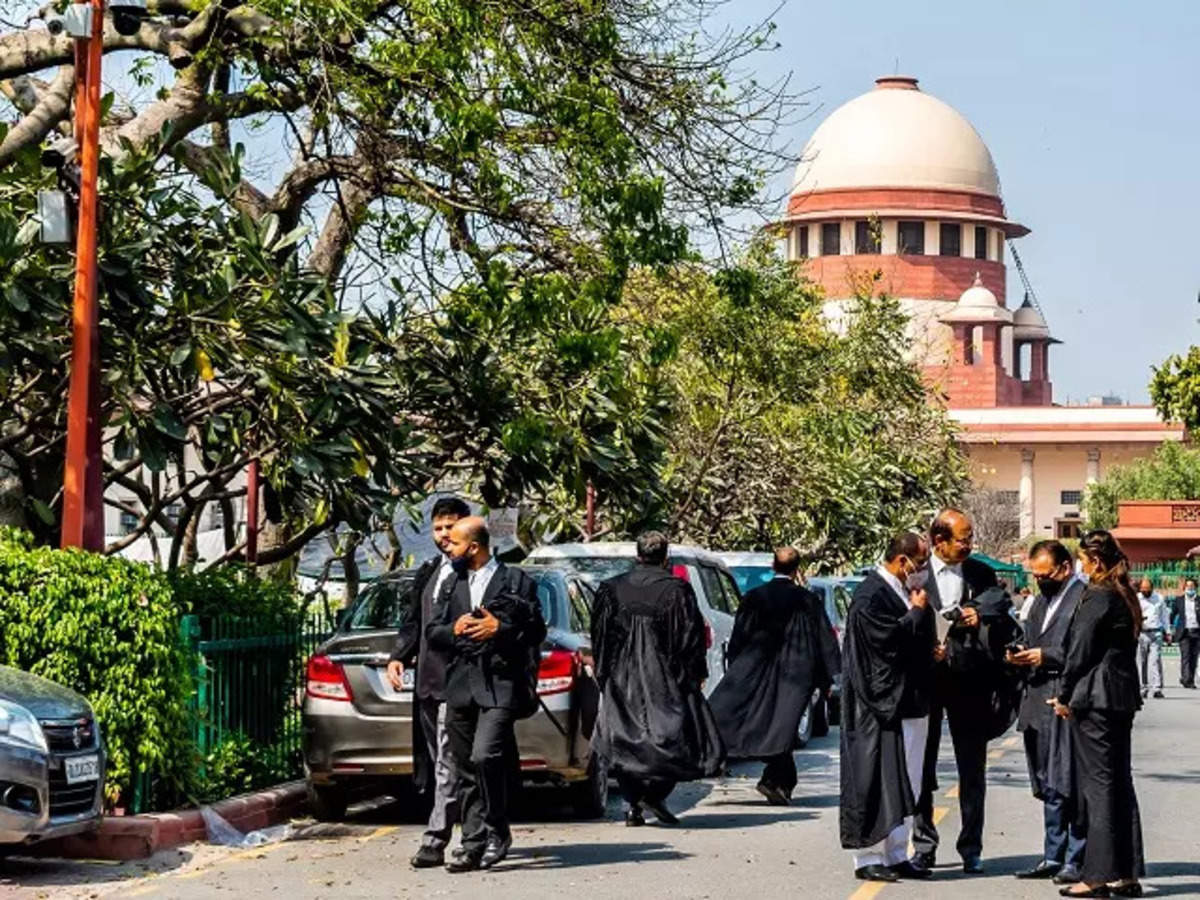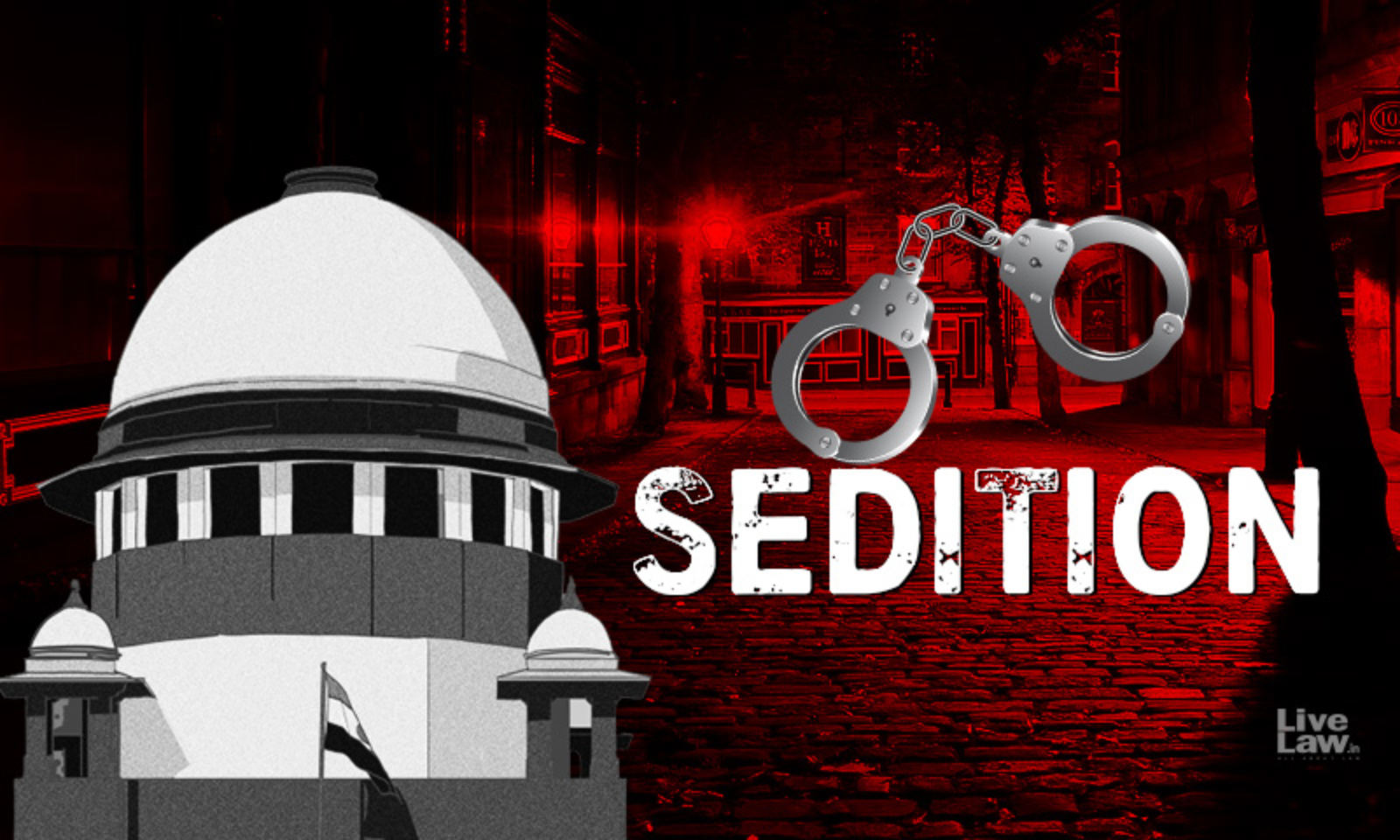India’s sedition law is under scrutiny in 2022

India’s sedition law is under scrutiny in 2022
On Thursday, July 15, 2021, the Supreme Court expressed regret over the enormous potential for misuse of India’s sedition law and asked the Union government why a colonial law that was once used by the British government to oppress the freedom movement and its leaders, such as Mahatma Gandhi and Bal Gangadhar Tilak, should not be repealed.
In this regard, the court cited the purported indiscriminate application of Section 124A (sedition) of the Indian Penal Code.
When the existing administration was repealing numerous archaic laws, a bench led by Chief Justice of India (CJI) NV Ramana wondered why the government was not looking into this statute. It had stated that the continuation of this statute poses a major threat to the operation of institutions and the liberty of persons.
Following a succession of remarks and judgements by the judiciary, notably the Supreme Court in 2021, prominent figures from different fields, including, Politicians such as Kapil Sibal, historian S Irfan Habib, and filmmaker and former Parliamentarian Pritish Nandy have called for the repeal or reform of India’s sedition statute.
The court highlighted its worry about the abuse of the statute and the lack of accountability of the executive and investigating authorities in issuing a notice to the federal government on a slew of petitions that sought to have Section 124A struck down.
Developments in recent years

The Centre had told the bench in response to petitions challenging the constitutional validity of Section 124A that it was well aware of the varied viewpoints on the topic and has chosen to re-examine and re-consider the provisions of Section 124A. It requested the court to postpone hearings on petitions challenging the law’s constitutional legality until the exercise is completed in a proper venue.
It also asked the court to postpone the hearing until the exercise is finished. The court stated that it was aware of the state’s security interests and integrity on the one hand, and citizens’ civil freedoms on the other and that there was a need to balance both sets of factors, admitting that it was a challenging task.
The petitioners argue that this clause of the legislation, which originates from 1898 and predates the Constitution, is being abused.
The court decided that until the re-examination of the clause is completed, it would be inappropriate for governments to continue to use the provision.
As a result, the Supreme Judicial postponed outstanding criminal cases and court procedures under Section 124A (sedition) of the Indian Penal Code on Wednesday, May 11, 2022, allowing the Union of India to rethink the British-era provision.
All outstanding cases, appeals, and actions relating to the charge brought under Section 124A of the IPC would be put on hold, according to a three-judge Supreme Court bench chaired by Chief Justice of India N.V. Ramana.
While the colonial provision was being reconsidered, the court hoped and anticipated the Centre and States to refrain from initiating FIRs, pursuing investigations, or using coercive steps under Section 124A.
Interim Order of the SC: Reactions from the Political Class

Randeep Singh Surjewala, the Congress’s chief spokesperson, called the ruling historic and said the Supreme Court had delivered a strong message. Suppressors and subjugators in authority should be aware that autocrats and tyrants posing as rulers will not silence free expression. Speaking truth to authority, he believes, is not sedition.
Shama Mohamed, a spokeswoman for the Congress, expressed hope that the ruling will provide relief to political prisoners facing sedition accusations.
Mahua Moitra, a Trinamool Congress MP and one of the law’s petitioners congratulated her lawyer Gopal Sankaranarayan for the court victory and said May 11 was a glorious day for democracy.
Sitaram Yechury, general secretary of the Communist Party of India (Marxist), said his party has long opposed the outdated legislation, believing it was introduced by the British to suppress our liberation fight and that Section 124 (A)) has no place in the statute books of Independent India.
However, the replies of major opposition parties such as the Congress and the CPI (M) appear to be political, intended against Prime Minister Narendra Modi’s government, rather than genuine concern over the alleged misuse of the legislation.
We must remember that Congress (including Trinamul Congress, whose leader, Mamata Banerjee, was a Congress member at the time) was in power for 75 years and did not consider knocking down or altering the clauses in the legislation that it is now complaining about. This is incomprehensible, it should be mentioned.
It should also be noted that the argument is not so much against the legislation as it is against its application. A country like India, which is threatened by separatist groups such as the Khalistani movement, Naxalism, and Pakistan-sponsored terrorism, must protect itself from these dangers.
Although the prospect of abuse of the law’s provisions cannot be ruled out, there can be no credible argument for its repeal given the threat that separatist actions represent to the country’s integrity. The administration has made the correct decision to revisit the colonial restrictions. The Supreme Judicial has also granted the Union Government’s motion, ordering that all current criminal cases and court procedures under Section 124A (sedition) of the Indian Penal Code be suspended until the Union Government reconsiders the colonial laws.
It will be in the best interests of everybody, notably the opposition political parties, to avoid fishing in dangerous waters to win brownie points against the Union Government and instead wait for the conclusion of the Government’s reconsideration and the Supreme Court’s ruling.
A historical perspective on sedition

The sedition statute, which has been challenged in the Supreme Court and whose validity is being considered by the Court, was created by Thomas Macaulay, a British historian and politician during British rule, and was first implemented in India in 1870. Its main goal was to cope with the growing Wahabi activity in India at the time, which constituted a threat to the British Colonial Government.
The Wahabi movement, which was centred in Patna, was an Islamic Revivalist movement that emphasized the condemnation of any deviation from original Islam and the restoration to its pure essence.
Syed Ahmed Barelvi headed the movement. The movement had been active since the 1830s, but after the 1857 insurrection, it became an armed resistance movement, a Jihad against the British. Following that, the British labelled Wahabis as traitors and insurgents and launched significant military operations against them. After 1870, the movement was completely crushed. In the Indian Penal Code of 1870, the British coined the term “sedition” to describe any statement intended to incite or cause people to rebel against a state’s authority. In India, this movement marked the genesis of the sedition legislation.
The British employed the sedition legislation to stifle dissent and arrest freedom fighters throughout the war for independence.
It was thought that India would not have a sedition statute after independence. In the chapter on basic rights, the original Constitution, established in 1950, did not recognize the sedition statute, granting complete protection to the right to free expression. However, the first amendment, passed in 1951, added constraints to the sedition statute, validating it.
Following Independence, the authors of the Constitution spent considerable time debating different parts of colonial law. K.M. Munshi was one of the most outspoken opponents of the sedition legislation, claiming that it constituted a danger to India’s democracy. He said that the essence of democracy is government criticism. The term sedition was removed from the Constitution due to his efforts and the insistence of Sikh politician Bhupinder Singh Mann.
The contentious First Amendment, approved by the administration led by the first Prime Minister Jawaharlal Nehru, reinstated this statute. In 1951, on submitting the first amendment to the Constitution, Nehru declared, “As far as I am concerned, that particular Section (124A IPC) is exceedingly offensive and obnoxious, and it should have no place in whatever body of laws that we could enact, both for practical and historical reasons.” We should get rid of it as quickly as possible.
However, he hesitated, and his administration not only reinstated the sedition legislation with the first amendment in 1951 but also reinforced it by adding two new terms, cordial relations with foreign states and public order, as grounds for putting justifiable limitations on free speech.
Sedition is defined by Section 124A of the Indian Penal Code. However, the term “sedition” is not used in the IPC part.
The sedition law states:
“Whoever, by words, whether spoken or written, or by signs, or by visible representation, or otherwise, brings or attempts to bring into hatred or contempt, or excites or attempts to excite disaffection towards the government established by law in India, shall be punished with imprisonment for a term not exceeding three years, to which a fine may be added, or with fine.”
Kanhaiya Kumar, Umar Khalid, and other JNU students were charged with sedition in 2016 for allegedly chanting traitorous chants on campus.
Laws about sedition in other countries
The sedition legislation was formally repealed in the United Kingdom via Section 73 of the Coroners and Justice Act, 2009, citing a stifling effect on freedom of speech and expression. The common law against sedition, which dates back to the Statute of Westminster in 1275, when the King was regarded to be the possessor of Divine right, was described as obscure and from a bygone period in which freedom of expression has not recognized as a right.
Under the Federal Criminal Code, Section 2384, sedition is a federal felony (an act of committing a serious crime such as murder, punishable by a term of imprisonment of not less than one year or by the death penalty) in the United States, and is now being used against rioters involved in the protests.
Despite the First Amendment’s prohibition on any limits on free expression, conspiracy to interfere directly with the operation of the government, not only speech, is deemed sedition.
Australia removed its sedition law in 2010, and Singapore will do likewise in 2021, saying that many new laws will adequately handle the need for sedition law without stifling consequences.
Views expressed

Sedition, according to Supreme Court advocate Atul Kumar, is the use of words or deeds to persuade individuals to be or act against a government. He believes that there is a fine line between legitimate criticism and conspiracy. He claims that the judiciary must eventually review executive activities, or else any disagreeing voice will be labelled as sedition. However, he believes that, for the time being, India should not eliminate the sedition legislation, but rather alter it.
According to lawyer Preeti Lakhera, the courts appear to have leaned toward saying that where there is no violence, the sedition legislation should not be utilized. However, she believes that the phrases might be associated with violence at any moment.
According to her, such laws should stay in the public domain to allow the government to quell anarchy and turmoil. She believes that the key notion is to keep a tool in the armour, such as a Brahmastra, to maintain control.
It should be mentioned that the Legislation Commission, in its 2018 consultation document, advocated for a reconsideration of sedition law. In this regard, the Law Commission stated that any reckless use of the right to free speech and expression cannot be considered seditious.
On his part, Attorney General (AG) of India KK Venugopal is said to have suggested that the entire section does not need to be thrown down and that the court might set stringent rules to ensure that the provision fits the requirements.
edited and proofread by nikita sharma




